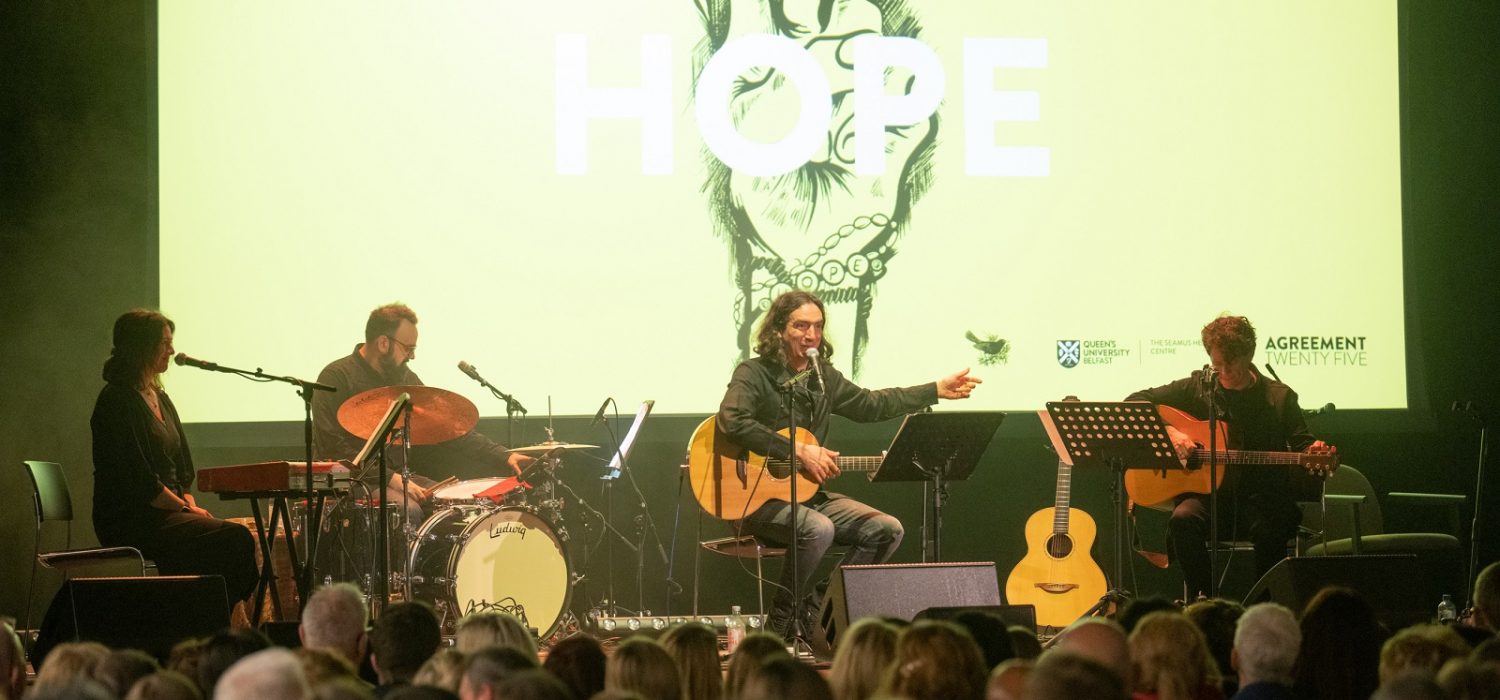Agreement 25 – The role of the arts in peacebuilding
The arts play a significant role in conflict zones for diverting attention from the horrors of war and in redirecting post-conflict strategies towards social rebuilding says Professor Fiona McGowan.

Gary Lightbody and special guests took part in The Seamus Heaney Centre Presents… HOPE, on Tuesday 18 April as part of Agreement 25.
The 25th anniversary of the Good Friday Agreement is an opportune time to reflect upon the role of the arts in peacebuilding, which comprises a research strand in the Religion, Arts and Peacebuilding Theme of the Senator George J. Mitchell Institute at Queen’s.
The arts play a significant role in conflict zones for diverting attention from the horrors of war and in redirecting post-conflict strategies towards social rebuilding by helping to create conditions of trust, empathy, awareness-raising and rigorous engagement with diversity. Artistic practice can be a means of rising above the desolation experienced by the ravages of conflict and a way to articulate the experiences and emotions evoked by such conflicts. As John Paul Lederach has noted, ‘peace-building is an approach that addresses the culture of violence, by transforming it into the culture of dialogue’.
The trauma arising from conflict means that the arts should be used sensitively in ways that support participants as they seek to deal with traumatic effects and the complex interrelationships between forgiveness and remembrance. That also includes the right to forget what has happened as artistic forms can provide arenas for self-expression in the present moment not just as a means of reflecting upon the past. Consequently, methods employed for arts in peacebuilding should be emergent from the needs of the individual or groups involved. This is especially so in looking towards the future of using arts in peacebuilding with young people in Northern Ireland who come from a diversity of socio-cultural backgrounds and conflict/post-conflict experiences.
The work of many arts, theatre, music and dance organisations across the region has brought significant intergenerational insights into how the arts can address identities, effect transformation, work towards reconciling divisive perspectives, help to heal the past and give direction for the future.
To continue reading, please click here.
To find out more about our Agreement 25 celebrations, including how to access the livestream of the event, visit the Agreement 25 website.




